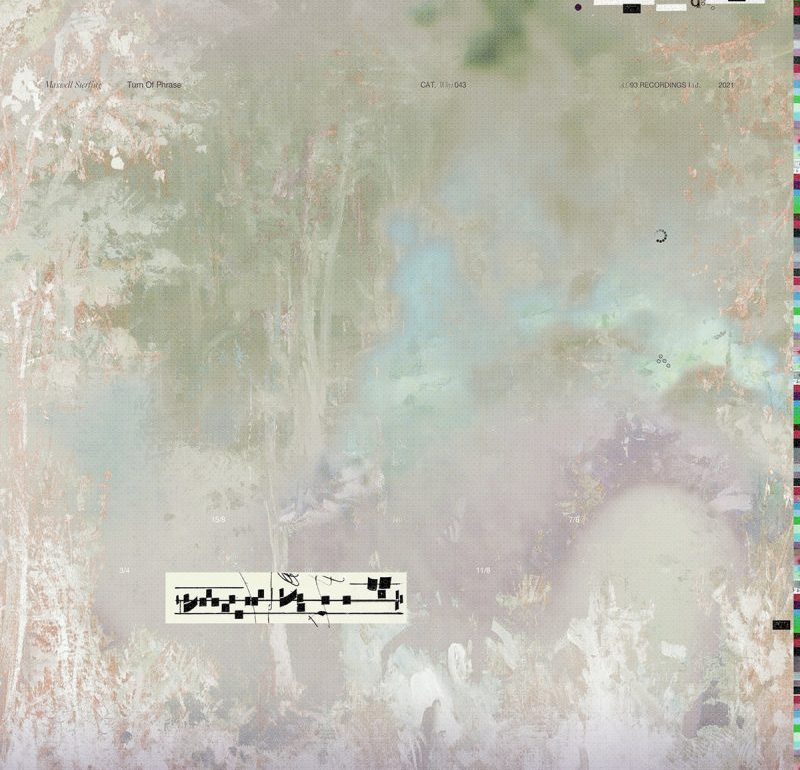Image: AD 93/WHYT043
To call Maxwell Sterling simply a composer doesn’t really feel right. The Manchester born artist, who works primarily in scoring for film and media, has behind him a body of work that often transcends its own definition. The soundtracks he crafts for film display his innate sense of narrative understanding, pulling from his history as an improvisational jazz performer to create music that in its own right performs alongside the characters it underscores as an alternative interpretation of the subtext. His first two albums further revealed Sterling as a formidable sonic auteur. His translation of the conceptual abstractions of those albums into music resulted in the formulation of a sound that pulled from his influences of experimental jazz, classical and minimal electronic, arranged in a way that may best accurately be described as dramaturgical. His third album, Turn of Phrase, released via AD 93 and WHYT043, continues to explore his left-field compositional methodology and sees Sterling contemplate communication by way of aesthetics.
The result is a breathtaking work which finds its voice in combining elements of classical avant-garde, baroque and most interestingly, IDM and techno. These electronic influences lend Turn of Phrase an alien like futurity, and present moments of abstract club music amidst a landscape of plucked string arpeggios and layered samples of speech recording, sounding something like if SOPHIE and John Cage decided to record the works of Vivaldi.
What ensues are sweeping pieces of sound design, exercises in what the application of the aesthetic quality of the sounds Sterling is preoccupied with can conjure for us. Take for instance Exuding Latex which, as its title suggests, is an exploration in recreating the experience and sensation of latex through sound. Sliding strings and melting woodwinds recall the slow, sensual ooze of liquid latex when positioned against a droning ambient backdrop. On Decay Time, a mournful string melody is placed atop ringing electronics which recall rapidly spinning clocks, all of which slowly devolve into an abstract madness akin to early Arca. On the title track, Sterling takes a harpsichord leitmotif through an entire vortex of juxtaposed styles and sounds from jittering sci-fi ambience to synthwave and finally, brash and jumping hyperpop, morphing and transforming the phrase at his will while always returning to the phrase’s core. The careful attention to detail which with Sterling executes these experiments is perhaps telling of a presumably obsessive creative process; even in its most random moments, Turn of Phrase is meticulously arranged and composed, each sound placed precisely so as to function in accordance to Sterling’s vision.
Turn of Phrase is both full of contrasts but also entirely synchronised, a stunning collection of music that refuses classification but demands anatomisation. The album risks pretension, and in parts it is but this grandiloquence is supported by its sheer brilliance. To call this IDM wouldn’t be entirely correct, and neither does “neo-classical” really fit the scope of what Sterling does here. It exists rather in its own orbit, arriving to us from another time and space like an extraterrestrial being who, after observing us for some time, speaks to us in a collage of the human experience.
“Queer as it sounds, that sums up my ethics,” slurs poet Leslie Winer on the album’s climax, Tenderness, a statement which to be honest, accurately describes Sterling’s unmatched approach to music making.
Download Turn of Phrase here.
Follow Maxwell Sterling:
Facebook | Instagram | Twitter | Soundcloud




